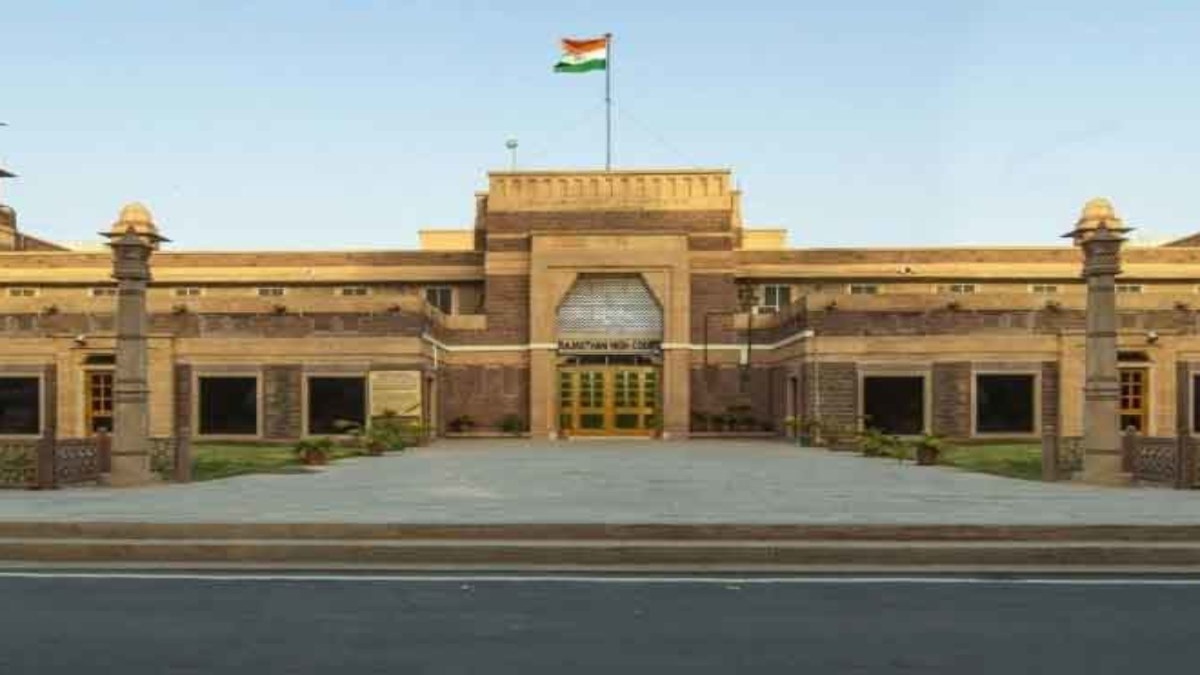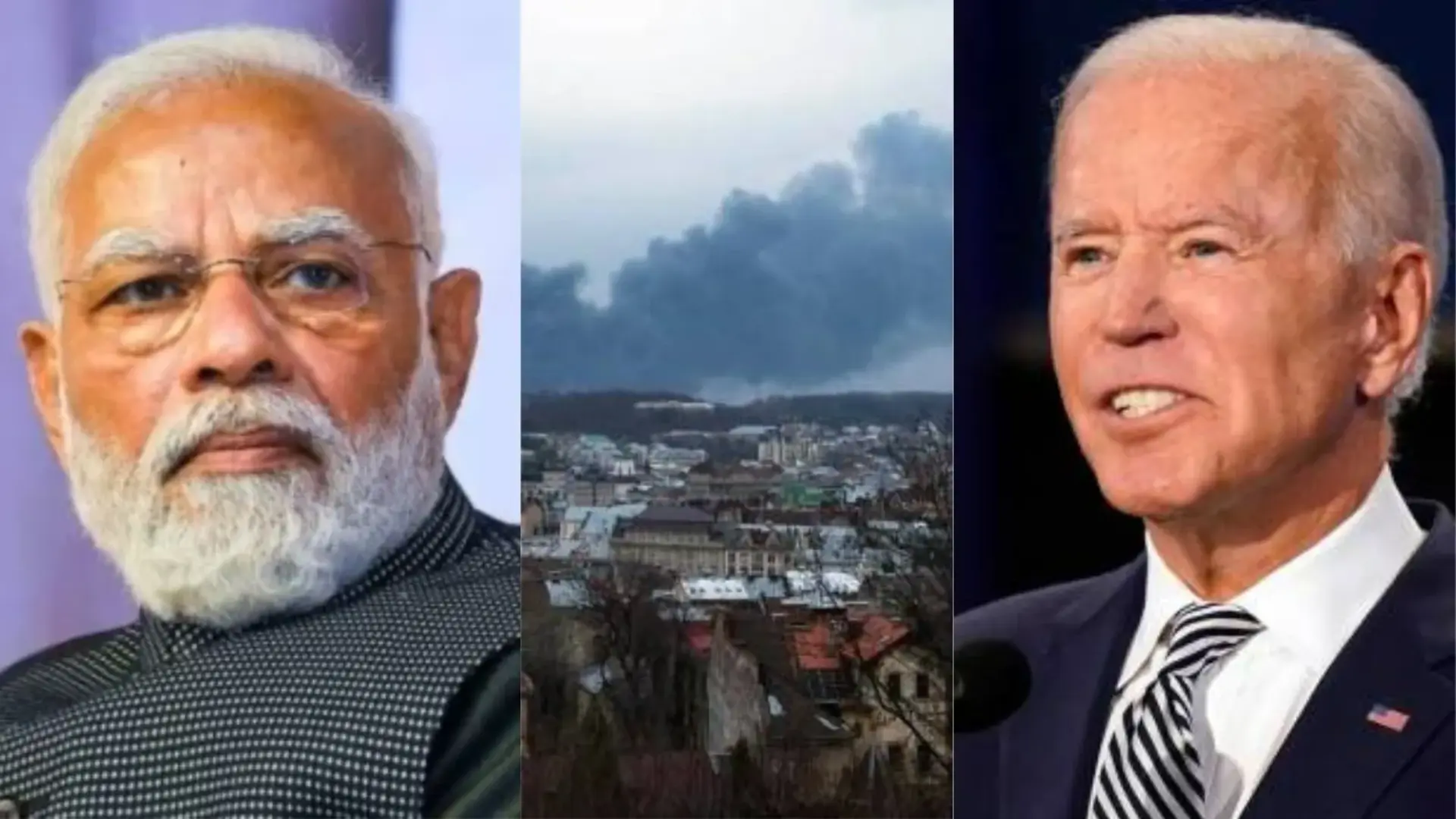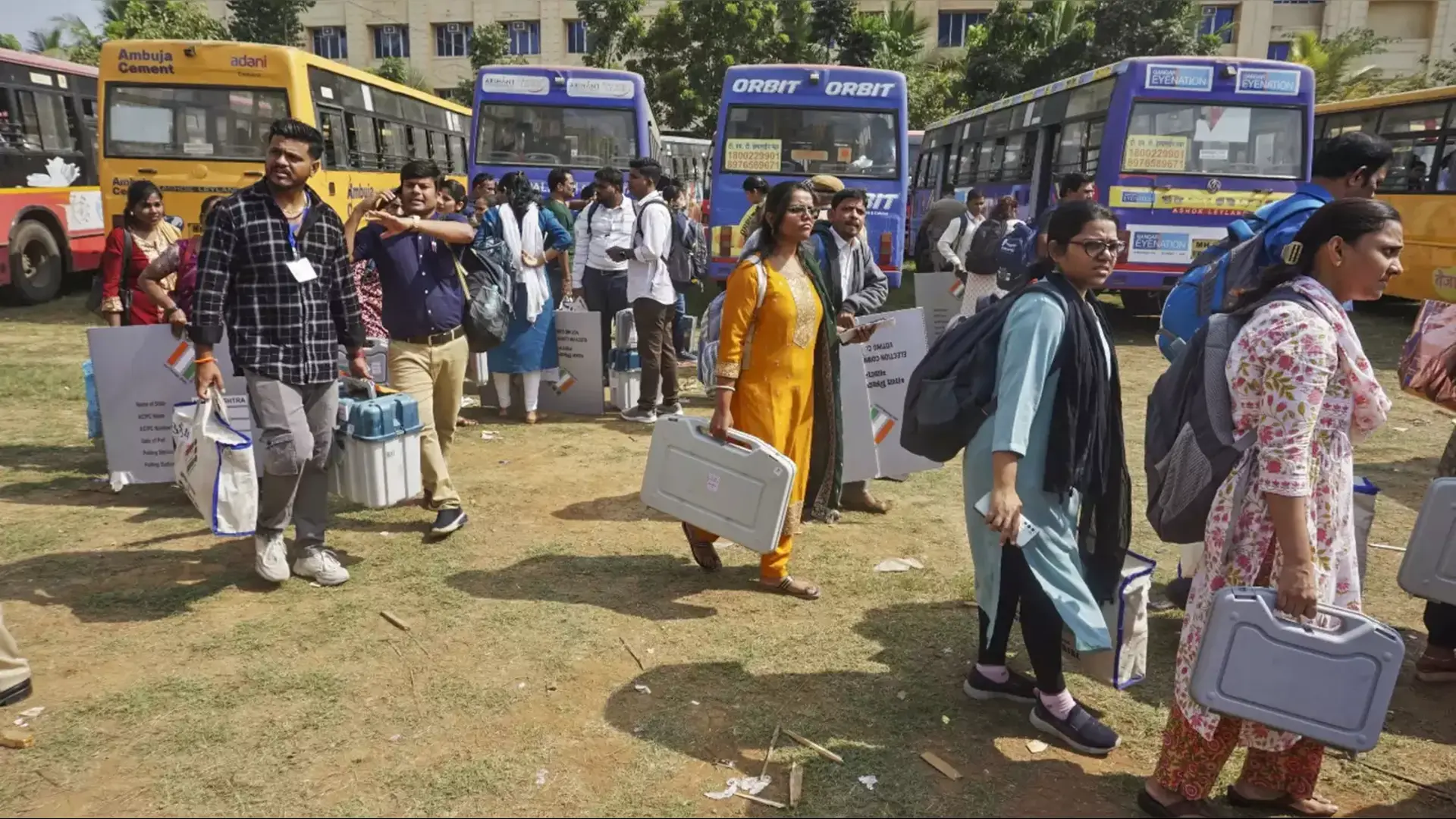
It is quite significant to note that in a recent, righteous and remarkable judgment titled Mohammed Aslam vs Union of India and another in S.B. Criminal Miscellaneous (Petition) No. 5139/2020 delivered on February 1, 2021, the Rajasthan High Court has explicitly, elegantly and effectively observed that the offence of gold smuggling with the intent to threaten or likely to threaten the economic security of the country is covered under the definition of ‘terrorist act’ under Section 15 of the Unlawful Activities Prevention Act, 1967 (UAPA). The Court said that such an activity will come under Section 15(I)(iiia) of the Act. Section 15(I)(iiia) of UAPA mentions activities with intent to threaten or likely to threaten the economic security of the country causing “damage to, the monetary stability of India by way of production or smuggling or circulation of high quality counterfeit Indian paper currency, coin or of any other material”. A single Judge Bench of Justice Satish Kumar Sharma of Rajasthan High Court made this pertinent observation while refusing to quash an FIR under UAPA in a petition filed under Section 482 of the Code of Criminal Procedure.
To start with, the ball is set rolling in the opening para by first and foremost observing that, “The present petition has been filed under section 482 of Cr.P.C. for quashing of FIR No. 36/2020/NIA/DLI/22-09-2020 registered at Police Station NIA, New Delhi under section 16 of Unlawful Activities (Prevention) Act, 1967 (Act of 1967) read with Section 120-B of IPC.”
Needless to say, it is then stated in the next para that, “Heard learned counsel for the petitioner and Mr. R.D. Rastogi, learned Additional Solicitor General assisted by Mr. T.P. Sharma, Advocate for respondents and perused the material made available on record.”
While stating the petitioner’s version, the Bench then mentions in the next para that, “Learned counsel for the petitioner submits that the present petitioner and other nine persons are facing trial under Customs Act for smuggling of 18.569 kilograms of gold before the Court of Additional Chief Judicial Magistrate (Economic Offences), Jaipur Metropolitan-II, Jaipur, still the present FIR has been registered by the NIA and the same being the second FIR on similar allegations is not maintainable. He further submits that the customs authorities often launch criminal prosecution for smuggling of gold but no such criminal case has ever been registered by the NIA. Thus, the action of NIA is discriminatory to the present petitioner. The impugned FIR has been registered only on the basis of suspicion whereas such FIR can only be registered for prima facie involvement of any person in terrorist activities as defined under Section 15 of the Act of 1967. The petitioner is being implicated on the allegation that he has smuggled the gold with intent to threaten the economic security of India as per provisions of Section 15(I)(a)(iiia) but in this provision smuggling of gold is not covered in the term “any other material”. Thus, the present FIR is a glaring example of abuse of process which deserves to be quashed. He has placed reliance on the following judgments:-
A. Criminal Appeal No.742 of 2020 Arnab Manoranjan Goswami Vs. The State of Maharashtra & Ors. (Supreme Court);
B. 1995 SCC Online Raj 620 : (1996) 2 RLW 578 Raguraj Singh and Another Vs. State of Rajasthan and Another;
C. (2001) 7 Supreme Court Cases 71 Dadi Jagannadham Vs. Jammulu Ramulu and Others;
D. (1991) 2 Supreme Court Cases 119 Assistant Collector of Central Excise, Guntur Vs. Ramdev Tobacco Company;
E. 2019 SCC Online SC 825 Pradeep Ram Vs. State of Jharkhand;
F. Criminal Application ST. No. 5028 of 2020 Kangana Ranaut & Anr. Vs. State of Maharashtra & Anr. (Bombay High Court)
G. Criminal Mis. Writ Petition No. 5019 of 2020 Suryaprakash Singh Verma @ Golu & Others VS. State of U.P. and 3 others;
H. 2020 SCC OnLine SC 994 Amish Devgan Vs. Union of India and Others.”
I. (2020) 3 Supreme Court Cases 54 Prem Chand Singh Vs. State of Uttar Pradesh and Another.
On the contrary, it is then stated in the next para that, “Per contra, learned Additional Solicitor General assisted by Mr. T. P. Sharma, Advocate has vehemently opposed the petition with the submissions that the accused-petitioner has been found to be involved in smuggling of huge quantity of gold with intent to threaten or likely to threaten the economic security of the country which is prima facie a terrorist act as defined under Section 15 of the Act of 1967. In view of his own statement recorded under Section 108 of Customs Act and other supporting material he has not been found only a smuggler but a facilitator also who has facilitated other persons in smuggling activities. Therefore, the impugned FIR has been registered against him.”
In a setback to the petitioner, it is then stated in the next para that, “Under Section 15(I)(a)(iiia) of the Act of 1967, the smuggling of gold with intent to threaten or likely to threaten the economic security of the country is very much covered under the smuggling of “any other material” Thus, the contention of the petitioner in this regard is not tenable.”
Simply put, it is then stated in the next para that, “The offence under the Customs Act for smuggling of gold and the offence under Section 16 of Act of 1967 are distinct offences, hence, separate prosecutions are maintainable under the law. Therefore, merely on the basis of prosecution under Customs Act, the impugned FIR cannot be said to be violative of the provisions of Article 20 of the Constitution of India and Section 300 of Cr.P.C.”
Truth be told, it cannot be just glossed over that it is then pointed out in the next para that, “The offence, herein, is very serious in nature for which stringent provisions for bail have been made to the effect that no bail can be granted unless the Court comes to the conclusion that no case is made out against the accused-petitioner. In the facts of the case, the petitioner is not entitled for any sort of interim protection and the same would have the effect of anticipatory bail which is not permissible.”
While continuing in the same vein, it is then brought out in the next para that, “The present petition is devoid of any merit and the same deserves to be dismissed. He has placed reliance on following judgments:-
1. DB Criminal Writ Petition No. 1078/2018 Pukhraj Ramdev Padiya Vs. UOI Decided on 18.01.2019, Rajasthan High Court;
2. Punit Vs. State 2017 SCC Online 4061;
3. State of Telangana Vs. Habib Ahdullah Jilani (2017) 2 SCC 779;
4. Naresh J. Sukhwani Vs. UOI (1995) Supp 4 663;
5. State of Jharkand Vs. Lalu Prasad Yadav (2017) 8 SCC 1
6. Monica Bedi Vs. State of Andhra Pradesh (2011) 1 SCC 284;
7. Om Prakash Bhatia Vs. UOI (2003) 6 SCC 161;
8. State of Tamil Nadu Vs. S. Martin (2018) 5 SCC 718;
9. UOI Vs. P.P. Sharma (1992) Suppl. 1 SCC 222;
10. Mannu Bhai Najbhai Dhandhal Vs. Commissioner of Police SCA No. 9651/2019;
11. State Vs. Anil Sharma (1997) 7 SCC 187;
12. State Vs. Bimal Krishna Kandu (1997) 8 SCC 104;
13. Jayendra Saraswathi Swamigal Vs. State (2005) 2 SCC.”
As we see, after considering the submissions made by both the sides and perusing the judgments cited by both the sides, it is then forthrightly stated by the Bench that, “It is not desirable to meticulously examine the merits of the case at this stage. Therefore, without expressing any opinion on merits, suffice it to say that the NIA is empowered to register a case under Section 16 of Act of 1967 for the Terrorist act as defined under Section 15 of the Act of 1967 which is reproduced below:-
15. Terrorist act
1. Whoever does any act with intent to threaten or likely to threaten the unity, integrity, security, [economic security,] or sovereignty of India or with intent to strike terror or likely to strike terror in the people or any section of the people in India or in any foreign country,
(a) by using bombs, dynamite or other explosive substances or inflammable substances or firearms or other lethal weapons or poisonous or noxious gases or other chemicals or by any other substances (whether biological radioactive, nuclear or otherwise) of a hazardous nature or by any other means of whatever nature to cause or likely to cause
(i) death of, or injuries to, any person or persons; or
(ii) loss of, or damage to, or destruction of, property; or
(iii) disruption of any supplies or services essential to the life of the community in India or in any foreign country; or
[(iiia) damage to, the monetary stability of India by way of production or smuggling or circulation of high quality counterfeit Indian paper currency, coin or of any other material; or]
(iv) damage or destruction of any property in India or in a foreign country used or intended to be used for the defence of India or in connection with any other purposes of the Government of India, any State Government or any of their agencies; or
(b) overawes by means of criminal force or the show of criminal force or attempts to do so or causes death of any public functionary or attempts to cause death of any public functionary; or
(c) detains, kidnaps or abducts any person and threatens to kill or injure such person or does any other act in order to compel the Government of India, any State Government or the Government of a foreign country or [an international or inter-governmental organisation or any other person to do or abstain from doing any act; or], commits a terrorist act.
[Explanation. – For the purpose of this sub-section,-
(a) “public functionary” means the constitutional authorities or any other functionary notified in the Official Gazette by the Central Government as public functionary;
(b) “high quality counterfeit Indian currency” means the counterfeit currency as may be declared after examination by an authorised or notified forensic authority that, such currency imitates or compromises with the key security features as specified in the Third Schedule.]
[(2) The terrorist act includes an act which constitutes an offence within the scope of, and as defined in any of the treaties specified in the Second Schedule.].”
As a corollary, it is then observed by the Bench in the next para that, “From the perusal of above provisions, it is clear that the “Terrorist act” also includes the act done with intent to threaten or likely to threaten the economic security of the country. Such act has been further qualified under Section 15(I)(a)(iiia) which may cause damage to the monetary stability of India by way of smuggling of any other material. The smuggling of any valuable material can cause damage to the monetary stability of the nation which may have impact to threaten or likely to threaten the economic security, therefore, the legislature in its own wisdom appears to have not specified particular material in this provision. The gold is certainly a valuable material, smuggling of which can be done with intent to threaten or likely to threaten the economic security of the country. Therefore, the contention of the petitioner in this regard is not tenable.”
What’s more, it is then also stated quite significantly in the next para that, “The present FIR has been registered on sufficient material came to the notice of the NIA under the prosecution of the present petitioner and others under the Customs act and otherwise. As per statement of the petitioner recorded under Section 108 of Customs act and the statements of other co-accused persons and on the basis of other material, the present petitioner has been prima facie found to be smuggler of gold as well as the facilitator of the alleged smuggling. Therefore, it cannot be said that the present FIR has been registered without any basis or the contents of FIR prima facie do not constitute the impugned offences which may warrant quashing of the present FIR.
Please read concluding on link4din.com/guardians-numeric-wisdom
Further, the NIA shall, after due investigation, present its report (Negative FR/Challan) before the Trial Court and in case of filing of Challan, the petitioner shall be at liberty to take legal recourse available to him as per law.”
Most significantly, it is absolutely right for the Bench to then hold that, “It is true that every act of smuggling may not be covered under the definition of Terrorist act and only such smuggling of any material can be termed as Terrorist act which is done with intent to threaten or likely to threaten the economic security and to cause damage to the monetary stability of the country. In this case, the petitioner has been found to be smuggler of huge quantity of gold as well as facilitator to other fellow smugglers. Therefore, it cannot be said that this FIR is a discriminatory act towards him.”
For the sake of clarity, the Bench then makes it clear in the next para that, “The offences under the Customs Act and the Act of 1967 are distinct offences prosecution of which can run separately and it would not be violative of Article 20 of the Constitution of India and Section 300 of Cr.P.C. in view of the legal position as expounded in the judgments cited by learned Additional Solicitor General.”
Without mincing any words, it is then also observed forthrightly in the next para by Justice Satish Kumar Sharma of the Rajasthan High Court that, “The legal position as expounded in the judgments by learned counsel for the petitioner cannot be disputed but the facts and circumstances of this case are quite distinguishable. In none of them, FIR under Section 16 of the Act of 1967 has been registered simultaneously to the prosecution under the Customs act and no such FIR in the similar circumstances has been quashed. Thus, the above cited judgments do not help the petitioner.”
Finally, the Bench of Justice Satish Kumar Sharma then holds in the last para that, “In view of above, no case is made out for quashing of FIR or stay of its proceedings, resultantly the present petition is hereby dismissed. Stay application also stands dismissed.”
To conclude, the upshot of the above discussion leads one to infer that the offence of gold smuggling with the intent to threaten or likely to threaten the economic security of the country is covered under the definition of ‘terrorist act’ under Section 15 of the Unlawful Activities Prevention Act, 1967 (UAPA). We have already discussed everything pertaining to it in detail as stated above. All the citizens of our country would certainly be well advised to be aware of this so that they don’t land themselves in deep trouble and court needless trouble for themselves!
It is certainly better to be always cautious than to be complacent and foolishly end up on the wrong side of law which may cost landing up behind bars for several years! Now the onus is on us to decide for ourselves as to what we want. It is very difficult to get bail under UAPA for a long time and so why should we end up doing anything which makes us land in prison?
Sanjeev Sirohi, Advocate,















